Determining the right size for your spark plug is a crucial aspect of keeping your vehicle’s motor running at peak performance. By choosing the correct seat size, you can ensure that the spark plugs fit securely and reliably, which in turn will contribute to efficient fuel combustion and reliable ignition.
In this comprehensive guide you will find all the information you need to choose the proper seat size on your glow plugs. From the different sizes of sockets to the tools needed, you will get a complete understanding of the process. With this knowledge, you can confidently and accurately complete this important task, knowing you made the best choice for the correct spark plug hole size for your vehicle.
A quick note on spark plugs
These tiny but very important parts of the engine’s ignition chain play a key role in the smooth running of your vehicle. They don’t just provide the necessary ignition spark to fire the mixture of fuel and air in the engine cylinders; they are the catalysts that set the wheels in motion, driving the engine pistons and propelling your vehicle forward.
To keep your car running like a well-oiled machine, remember to check and change your spark plugs regularly. And when doing so, pay attention to the small details, such as utilizing the proper plug size for proper installation. These seemingly insignificant actions can make a huge difference in the long run, ensuring the smooth running and longevity of your car’s motor. [1]
Spark Plug Socket Size Chart
Below is a comprehensive guide to spark plug socket sizes for various kinds of vehicles. It is important to note that while these sizes are commonly used, it is always recommended to consult your vehicle’s owner manual or a trusted mechanic for specific information as sizes can vary depending about the engine make, brand, and motor type of your vehicle.
However, it is important to remember that these are standard sizes and may not fit every model in the respective categories. It is always advisable to verify the correct size for your specific device before replacing the plugs. This will help assure correct seating and avoid any possible deterioration. [1]
What Sizes Are Spark Plug Sockets Available In?
The spark plug seats came in a variety of different dimensions to fit different types of spark plugs used in varying types of vehicles. The following are the most common diameters: 5/8″ (16 mm), 3/4″ (19 mm) and 13/16″ (21 mm). The dimensions correspond to the hexagonal dimensions of the particular spark plug, which ensures a firm fit and easy removal.
In addition to these common sizes, there are other, less common sizes that are used for specialized vehicles. These sizes, such as 1/2″ (13 mm), 9/16″ (14 mm), or 7/8″ (22 mm), meet particular requirements for spark plugs and models of automobiles. It is important to note that these socket designs are not universal, meaning that not every size of socket is suitable for every type of plug or engine. To ensure compatibility and to avoid any complications, it is recommended that you always check the proper seat size for specific plugs and models before purchasing. This extra step can make sure you choose the right socket with confidence and provide hassle-free spark plug maintenance for your vehicle. [1]
Specific Applications
Choosing the right seat size for their spark plugs is not just a general maintenance task, but it also has specific applications for different types of vehicles. Here are some particular cases making the best choice of spark plug socket size is essential:
- High-Performance Vehicles: For cars designed for speed and performance, the correct size of the glow plug socket can provide optimal combustion efficiency, contributing to higher speeds, improved acceleration, and smoother rides. It allows for a secure fit of your plugs, maximizing the transfer of power and promoting consistent ignition.
- Off-Highway Vehicles: In off-highway applications such as ATVs or off-road motorcycles, the correct installation of glow plugs with properly dimensioned sockets is essential to maintain engine stability even in difficult conditions. The right socket size ensures a tight and secure fit, preventing misfires or dislodged plugs that could affect the engine’s performance and reliability during rugged off-road adventures.
- Commercial Trucks: For commercial trucks that cover long distances, the right spark plug socket size plays a vital role in promoting better fuel efficiency and reducing maintenance downtime. With the correct socket size, spark plugs can be installed properly, allowing for efficient combustion and optimal fuel consumption, resulting in improved mileage and reduced operating costs.
- Marine Vehicles: When it comes to boats and other marine vessels, choosing the right spark plug socket size is crucial for the overall performance of the engine. Marine environments present unique challenges such as humidity, saltwater exposure, and vibrations. The correct socket size ensures a snug and secure fit, preventing moisture intrusion and maintaining consistent ignition, which is essential for reliable performance and longevity in marine applications.
- Lawn and Garden Equipment: In lawn mowers and other small-engine garden equipment, the correct spark plug socket size is vital for an efficient ignition system. With the right socket size, spark plugs can be properly installed, allowing for reliable and consistent ignition. This results in improved fuel economy, reduced emissions, and less frequent maintenance, ensuring that your lawn and garden equipment operates smoothly and efficiently.
Remember, always consult your owner’s manual or a trusted mechanic for the specific socket size required for your spark plugs. Proper selection and installation of the right socket size for your spark plugs will contribute to the longevity, performance, and efficiency of your vehicle or equipment. [2]
Spark Plug Socket Sizes for Popular Vehicle
Each vehicle manufacturer meticulously designs its engines, resulting in unique spark plug socket sizes for different vehicle models. Here are some examples of popular vehicles and their corresponding spark plug socket sizes typically used:
- Ford F150: The Ford F150, known for its exceptional performance, commonly utilizes a spark plug with a 5/8″ (16mm) socket size, ensuring optimal combustion efficiency.
- Toyota Camry: The Toyota Camry, a reliable and fuel-efficient sedan, typically requires a 9/16″ (14mm) spark plug socket size, allowing for precise ignition and smooth engine operation.
- Chevrolet Silverado 1500: The Chevrolet Silverado 1500, a rugged and versatile pickup truck, generally employs a spark plug with a 5/8″ (16mm) socket size, delivering reliable power and performance.
- Honda Accord: The Honda Accord, renowned for its reliability and comfort, usually utilizes a spark plug with a 5/8″ (16mm) socket size, ensuring efficient combustion and optimal engine performance.
- Jeep Wrangler: The Jeep Wrangler, an iconic off-road vehicle, commonly requires a spark plug with a 5/8″ (16mm) socket size, providing reliable ignition even in challenging terrains.
Always remember that these are typical sizes and can vary depending on the specific model and year of your vehicle. It is crucial to verify the correct spark plug socket size for your specific vehicle before attempting to replace the spark plugs, ensuring proper fitment and optimal engine performance. [2], [3]
Things to Keep In Mind When Buying a Spark Plug Socket
When purchasing a spark plug socket, there are several important factors to consider to ensure you make the best choice for your specific needs. Here are some additional details to guide you:
- Correct Size: It is crucial to select the right socket size for your spark plug. As mentioned earlier, this can vary from 5/8″ (16mm) to 7/8″ (22mm), depending on your vehicle type. Choosing the correct size ensures a proper fit and optimal performance.
- Quality Material: The material of the socket plays a vital role in its durability and ability to withstand the torque applied during installation or removal of the spark plug. Opt for sockets made from high-quality chrome-vanadium steel or similarly robust materials. These materials offer excellent strength and longevity.
- Magnetic or Rubber Insert: Some spark plug sockets feature a magnetic or rubber insert designed to securely hold the spark plug in place during installation or removal. This feature proves particularly useful when working in tight or awkward engine spaces, providing added convenience and ease of use.
- Socket Length: Consider the length of the spark plug socket based on your vehicle’s engine design. Depending on the accessibility of the spark plugs, you may require a short, standard, or long reach socket. Choosing the appropriate length ensures proper reach and efficient installation or removal.
- Price: While it’s true that more expensive doesn’t always mean better, extremely cheap sockets might compromise on quality. It is important to strike a balance between your budget and the desired quality and features. Investing in a reasonably priced socket that meets your requirements will provide long-term value.
- Brand Reputation: When buying a spark plug socket, it is advisable to consider reputable brands known for their quality and service. Such brands often offer reliable products backed by warranties, providing you with peace of mind and assurance.
Always remember to double-check your owner’s manual or consult a trusted mechanic to verify the correct size and type of spark plug socket required for your specific vehicle. By doing so, you not only ensure the longevity and optimal performance of your engine but also prevent any potential damage that could arise from using improper tools. [2], [3]
FAQ
Are all spark plugs 14mm?
The short answer is no, not all spark plugs are 14mm. Spark plugs come in various sizes to cater to different vehicle specifications and engine designs. The 14mm size is quite common and is used in many vehicles like the Toyota Camry, but it is not universal.
In addition to the 14mm size, there are other prevalent sizes that you may come across. These include 5/8″ (16mm), 3/4″ (19mm), and 13/16″ (21mm). Some specialized vehicles may even use less common sizes such as 1/2″ (13mm) or 7/8″ (22mm). It’s important to understand that the size of the spark plug plays a crucial role in the proper functioning of your vehicle’s engine. Using the wrong size can result in improper installation, leading to engine performance issues and potential damage.
To ensure the correct size for your specific vehicle’s spark plugs, it is always recommended to refer to the owner’s manual or consult with a professional mechanic. They will have the expertise and knowledge to guide you in selecting the right spark plug size for optimal performance and longevity of your engine. So, take the time to verify the correct size and make the right choice to keep your vehicle running smoothly.
Do I need a special socket for spark plugs?
Yes, a special socket for spark plugs is typically needed when installing or removing these components. Spark plug sockets are uniquely designed with a rubber or magnetic insert that holds the spark plug securely during installation or removal. This insert prevents the ceramic insulator from cracking, which could occur if a regular socket is used.
Standard spark plug socket sizes are 5/8″, 13/16″ and 14mm, although other sizes exist to accommodate different spark plug designs. These sockets often come with a six-point design for a better grip and reduced chance of slippage. Additionally, some spark plug sockets feature a built-in swivel mechanism, allowing for easier access to hard-to-reach spark plugs.
Using a spark plug socket not only protects the spark plugs from possible damage but also ensures a successful and secure installation. It provides the necessary grip and stability to safely tighten or loosen the spark plugs without causing harm to the delicate components.
So, remember to always use a dedicated spark plug socket when installing or removing spark plugs to maintain the longevity and performance of your vehicle’s ignition system.
Are spark plugs a standard size?
Spark plugs are not a standard size. Their sizes can vary based on the specific requirements of the vehicle’s engine. Common spark plug socket sizes include 5/8″ (16mm), 3/4″ (19mm), 13/16″ (21mm), and 14mm, but it’s important to note that these sizes are not universal. In fact, some cars, particularly certain sports or luxury models, may employ less common sizes like 1/2″ (13mm) or 7/8″ (22mm).
The wide range of sizes available gives manufacturers the flexibility to design engines with different combustion chamber sizes and heat range requirements. This allows for optimized engine performance and fuel efficiency. However, it also means that it’s crucial to refer to your vehicle’s owner’s manual or consult a professional mechanic to ensure you’re utilizing the correct spark plug size for your specific make and model.
Using the wrong size spark plug can lead to various problems, including improper installation, poor engine performance, and even engine damage. Therefore, it’s always recommended to take the necessary precautions and seek expert advice to ensure the proper functioning of your vehicle’s engine.
What socket do I need to unscrew my spark plug?
The specific socket needed to unscrew your spark plug depends on the size of the spark plug installed in your vehicle. Common sizes are 5/8″ (16mm), 3/4″ (19mm), 13/16″ (21mm), and 14mm. However, some vehicles may use less common sizes such as 1/2″ (13mm) or 7/8″ (22mm). You can refer to your vehicle’s owner’s manual to find out the specific size required.
In addition to the correct size, it’s advisable to use a spark plug socket to unscrew your spark plug. These sockets are specially designed with a rubber or magnetic insert to hold the spark plug securely during removal, preventing damage to the ceramic insulator. This added security ensures a smooth and hassle-free spark plug replacement process.
Moreover, using the wrong size or type of socket can lead to a range of issues, including improper installation, engine performance problems, and even potential engine damage. To avoid such complications, it’s always best to consult a professional mechanic if you’re unsure about the correct size or type of socket needed for your specific spark plug.
By following these guidelines and taking the necessary precautions, you can ensure a successful and trouble-free spark plug replacement, keeping your vehicle running smoothly and efficiently.
What size bolt for spark plugs?
Spark plugs are a crucial component of an engine’s ignition system, providing the necessary spark to ignite the air-fuel mixture and power the vehicle. In their design, spark plugs deviate from conventional bolts, as they are specifically threaded to screw directly into the engine’s cylinder head. This threaded connection ensures a secure fit and optimal performance.
Now, the thread size of spark plugs may vary depending on the specific requirements of the vehicle’s engine. It is important to note that using the correct thread size is essential for proper functioning and to prevent potential engine damage. Common thread sizes for spark plugs include 10mm, 12mm, 14mm, and 18mm. Among these options, the 14mm size stands out as the most prevalent in many modern vehicles.
To determine the thread size of your spark plugs, you can refer to your vehicle’s owner’s manual or consult with a professional mechanic. They will provide you with the accurate information and ensure that you choose the appropriate size specific to your vehicle.
Remember, using a spark plug with an incorrect thread size can have detrimental effects on engine performance and reliability. So, always prioritize using the correct spark plug size to safeguard your engine’s health and ensure smooth operation.
What size bit do I need to remove a spark plug?
The type and size of bit needed to remove a spark plug typically aligns with the required socket size for the spark plug. For most common vehicle models, a 5/8″ (16mm), 3/4″ (19mm), 13/16″ (21mm), or 14mm socket bit is used. However, certain vehicles may necessitate less common sizes such as 1/2″ (13mm) or 7/8″ (22mm). It’s important to choose the right size bit to ensure proper removal and avoid any potential issues.
When removing a spark plug, it’s crucial to note that a standard bit may not adequately grip the spark plug, which can lead to slippage and potential damage. To prevent this, it is highly recommended to use a special spark plug socket bit. This type of bit is designed with a rubber or magnetic insert that securely holds the spark plug during removal, minimizing the risk of mishaps and protecting the delicate ceramic insulator.
To ensure you’re using the correct size bit for your specific vehicle’s spark plugs, it is always advisable to refer to your vehicle’s owner’s manual or consult with a professional mechanic. They can provide you with the precise information and guidance needed to select the appropriate bit size for your vehicle. Using the wrong size or type of bit can result in improper removal, engine performance issues, and potentially costly engine damage.
By taking the time to choose the right bit and follow the manufacturer’s recommendations, you can ensure a smooth and successful spark plug removal process, maintaining the performance and longevity of your vehicle’s engine.
Useful Video: Spark Plug Socket Sizing (UK).- Car / Motorcycle maintenance.
Conclusion
Knowing the correct socket size for spark plugs is imperative for proper maintenance and longevity of your vehicle’s engine. It not only prevents damage during removal or installation but also ensures a snug fit, which is crucial for optimal performance.
When it comes to socket sizes, they can vary based on the make and model of your vehicle. However, common sizes such as 16mm, 18mm, and 20mm often suffice for most spark plugs. These sizes are widely available and can be easily found in most tool sets.
To ensure you have the right socket size, it’s always recommended to refer to your vehicle’s manual or consult a professional mechanic. They can provide you with specific information based on your vehicle’s requirements.
Remember, when it comes to automotive care and maintenance, having the right tools can make all the difference. So, investing in a reliable set of socket wrenches with various sizes will not only save you time and effort but also help you maintain your vehicle’s engine in top-notch condition for years to come.
References:
- https://www.electronicshub.org/spark-plug-socket-size/
- https://www.carparts.com/blog/what-size-is-a-spark-plug-socket-see-table-with-socket-sizes/
- https://www.carshtuff.com/post/what-size-is-a-spark-plug-socket





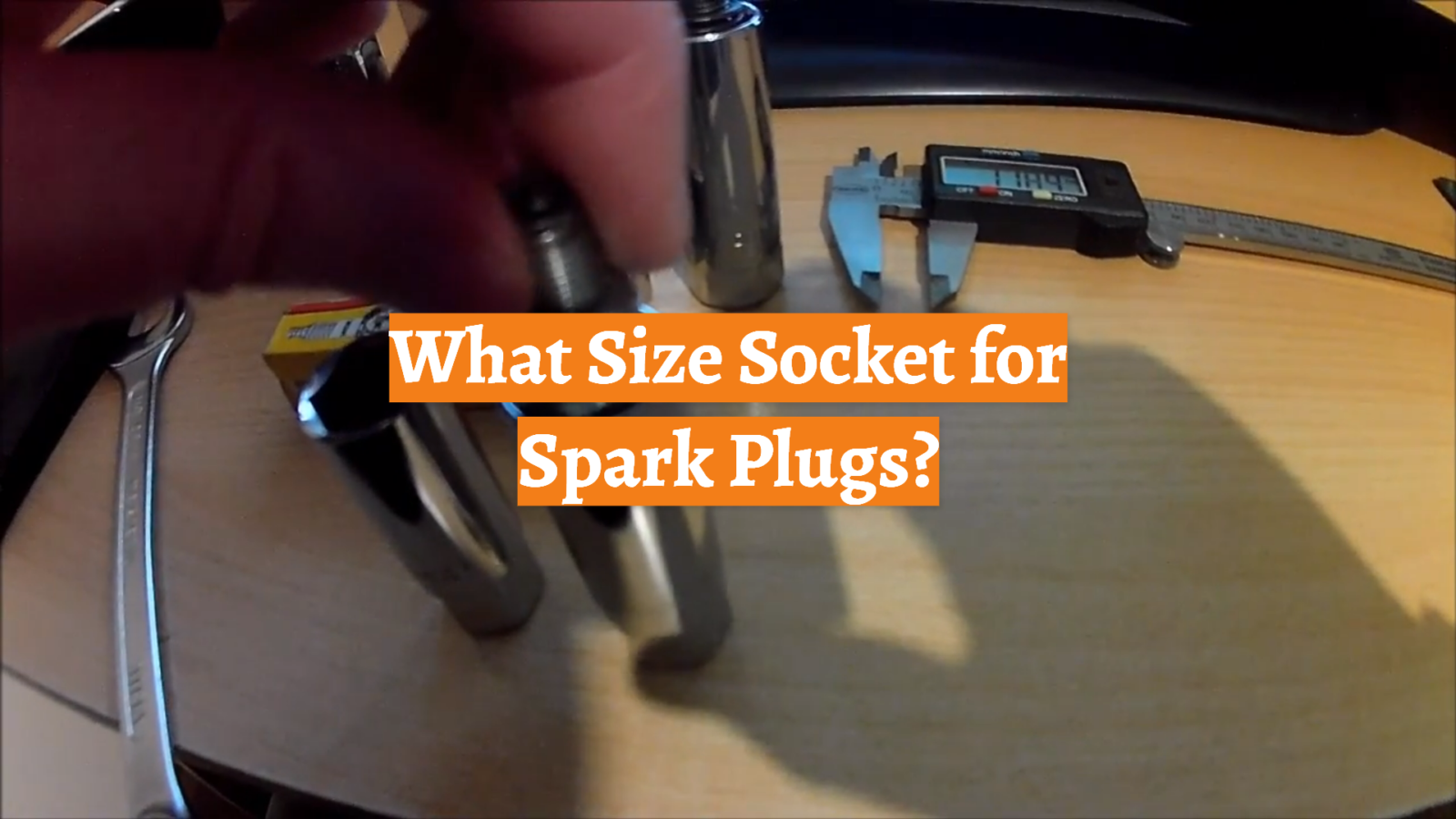
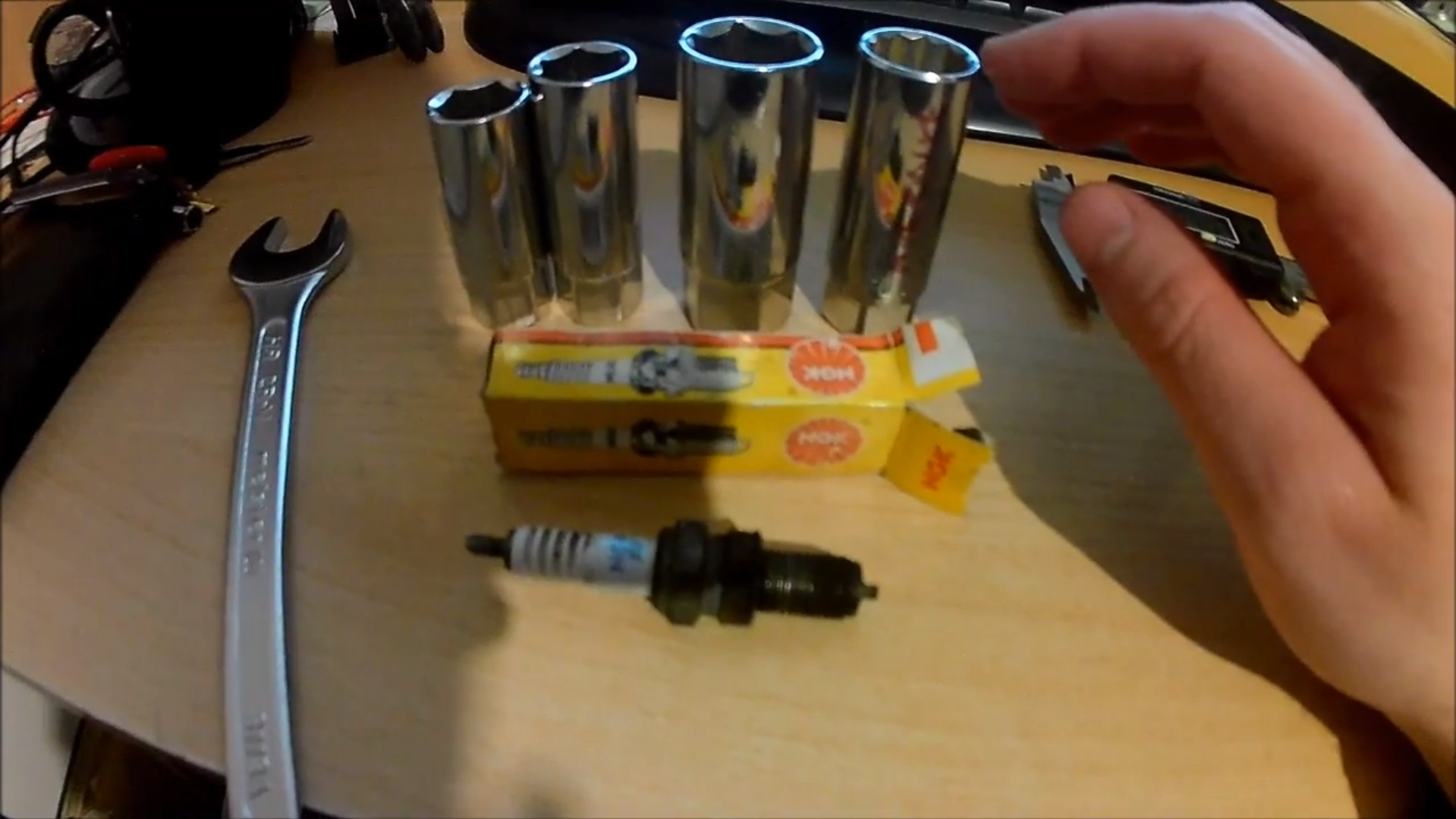
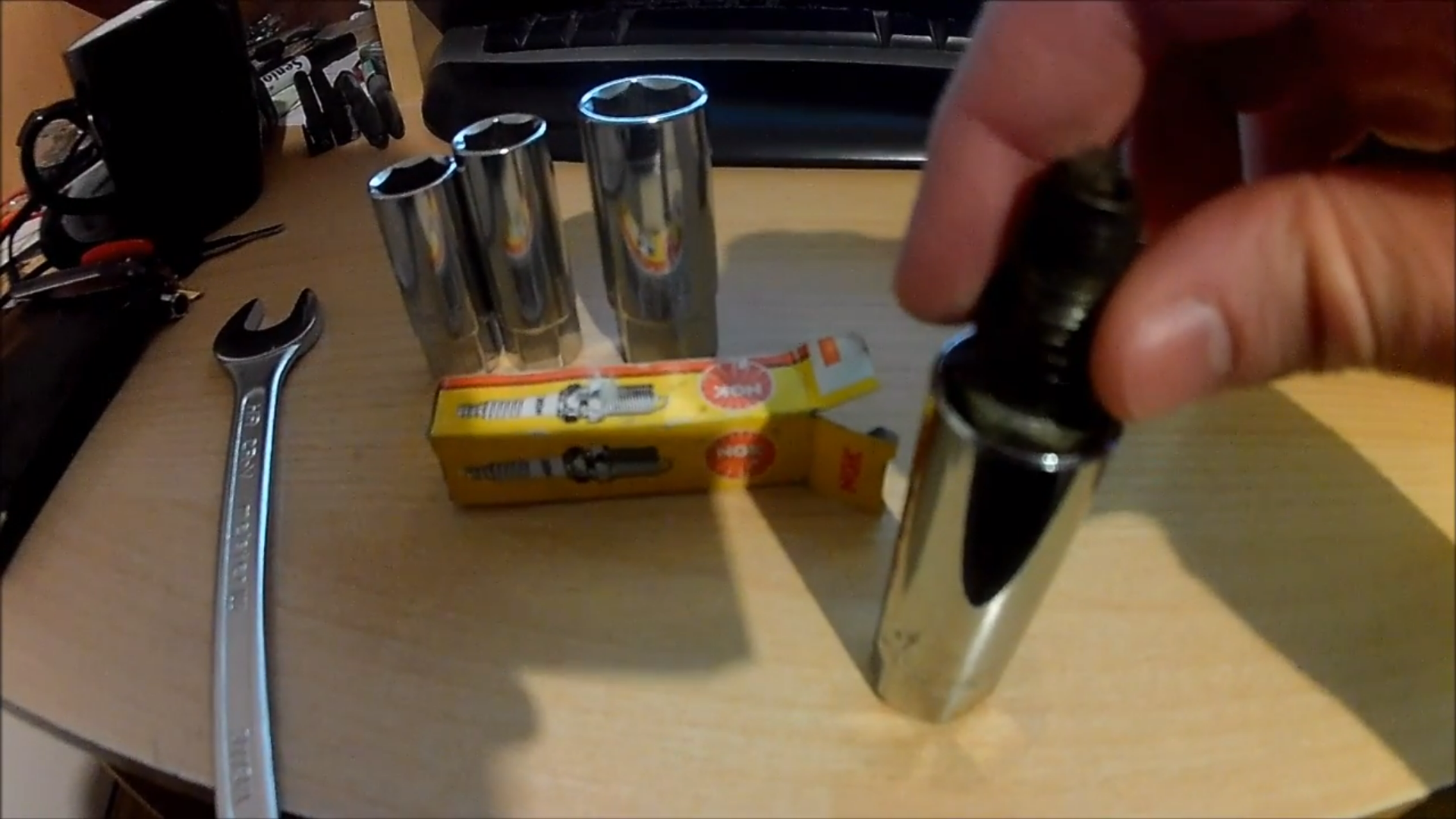
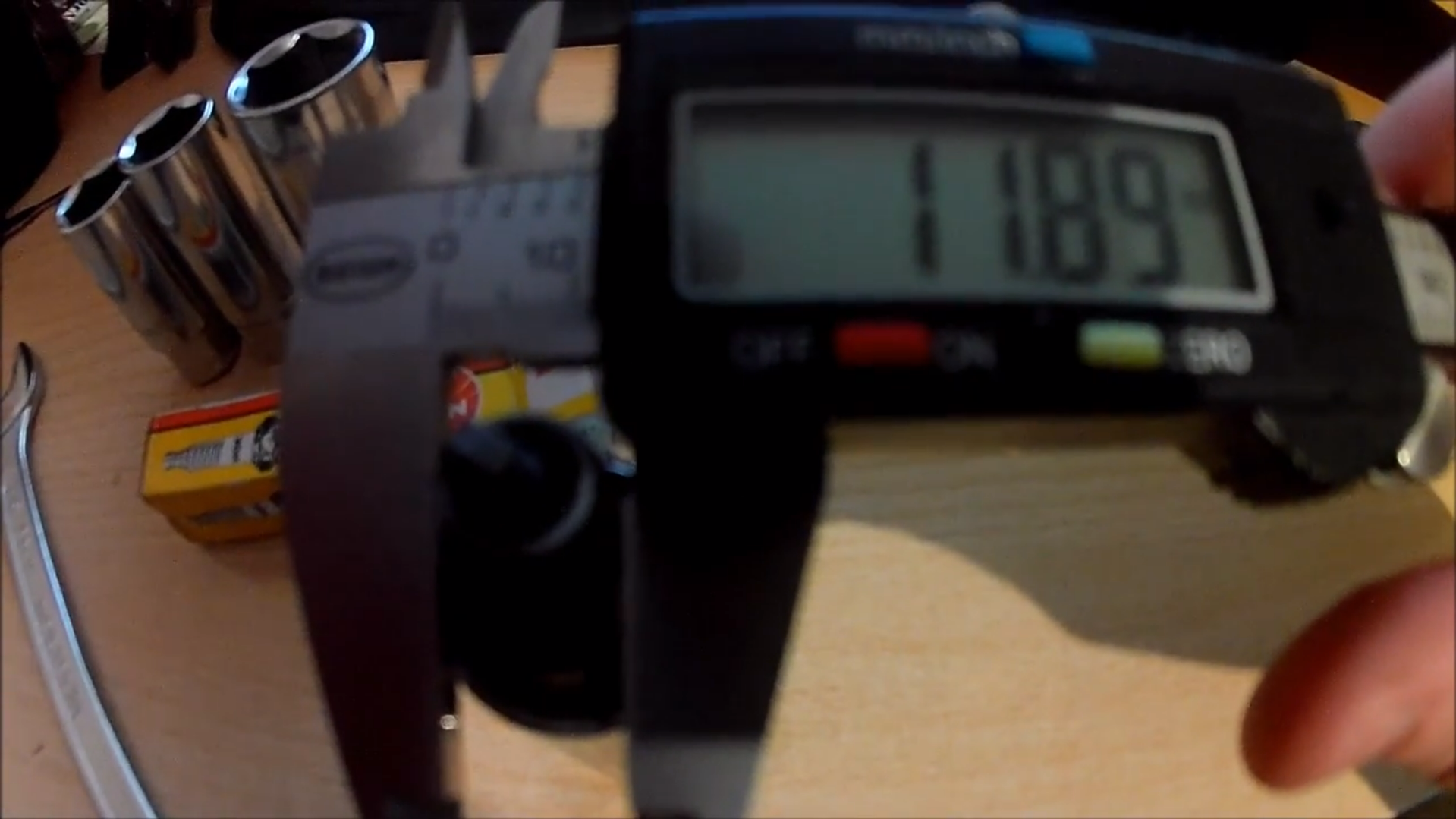
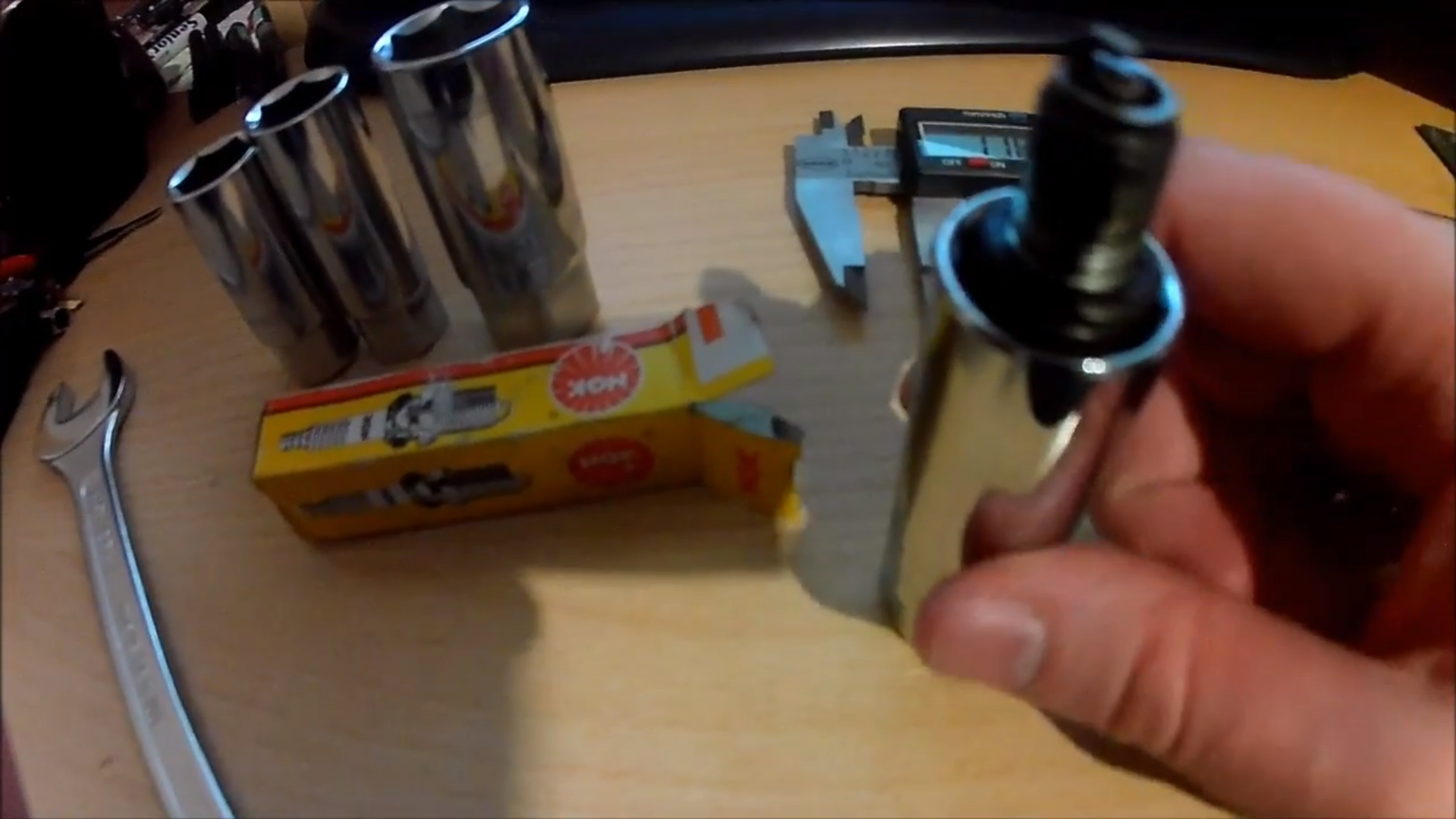
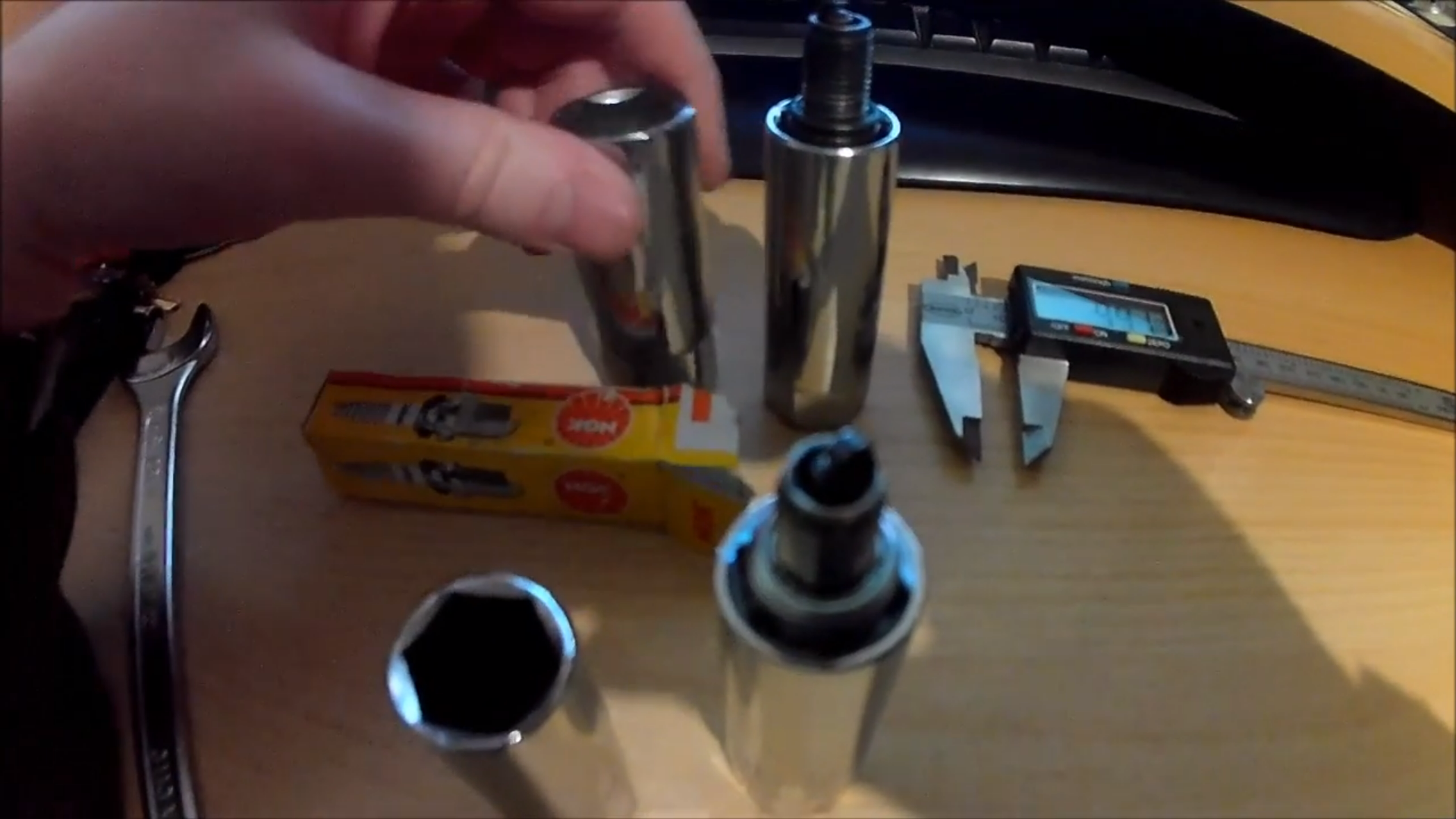
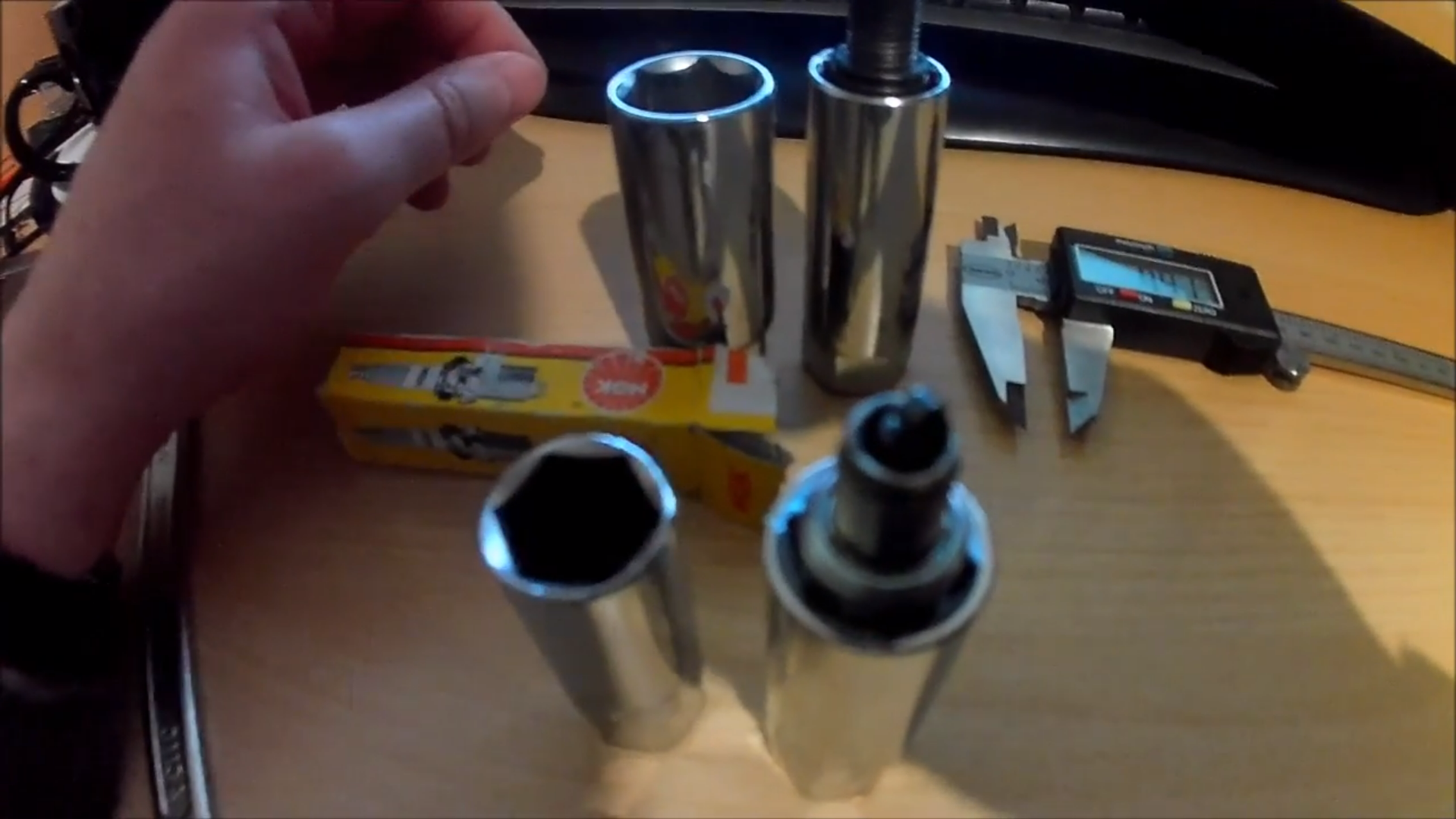

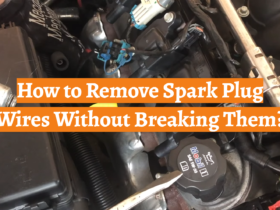


Leave a Review